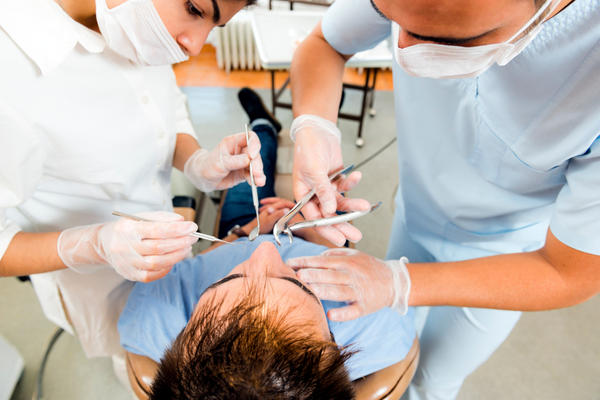Want Us To Contact You?
Dental Extractions
Extractions are necessary to remove teeth that are damaged beyond any form of restoration. In most cases, we will have to extract teeth with very big cavities, root canal infections, or damage due to external trauma. However, before performing an extraction, we will consider every means of restoring it to its ideal form. But, when all means of restoration fail, the tooth would have to be extracted to prevent it from becoming a severe health condition.

When Would an Extraction Be Necessary?
- Tooth extraction may be necessary in the following cases:
A tooth may have to be extracted when it has been seriously affected by a cavity. In the worst case, we would try to save it using root canal therapy by getting rid of the infected pulp. If the treatment doesn’t prove useful in restoring the tooth, it will have to be extracted. - When a tooth undergoes damage due to external trauma, it may suffer minor cracks, chipping, fracture, or even break off at the gum line. It is best to have it extracted to prevent the tooth from causing a lot of pain and leading to oral infections.
How Is the Extraction Carried out?
When you visit our practice to get a dental extraction, we will start with an initial screening of the oral cavity. The tooth tobe extracted will be cleaned to get rid of microbes and prevent them from entering the site of extraction. Local anesthesia will be administered to numb the soft tissues of the mouth, teeth, and jawbone. This prevents any pain and discomfort during the extraction.
Once the anesthesia takes effect, the tooth will be gripped using forceps and shaken lightly to loosen it from the socket. Next, it will be pulled out of the socket in its entirety in one swift motion. The patient would just feel a slight sensation of pressure and no pain at all. You will be asked to bite into a piece of gauze to control the bleeding and to promote the formation of a clot.
Post-extraction Care
For the next few days after an extraction, avoid consuming foods that are too hot, cold, or spicy. Also, take extra care not to dislodge the clot while brushing your teeth, which otherwise could cause more bleeding. Once the wound heals, we can go ahead with planning the restoration procedure.


